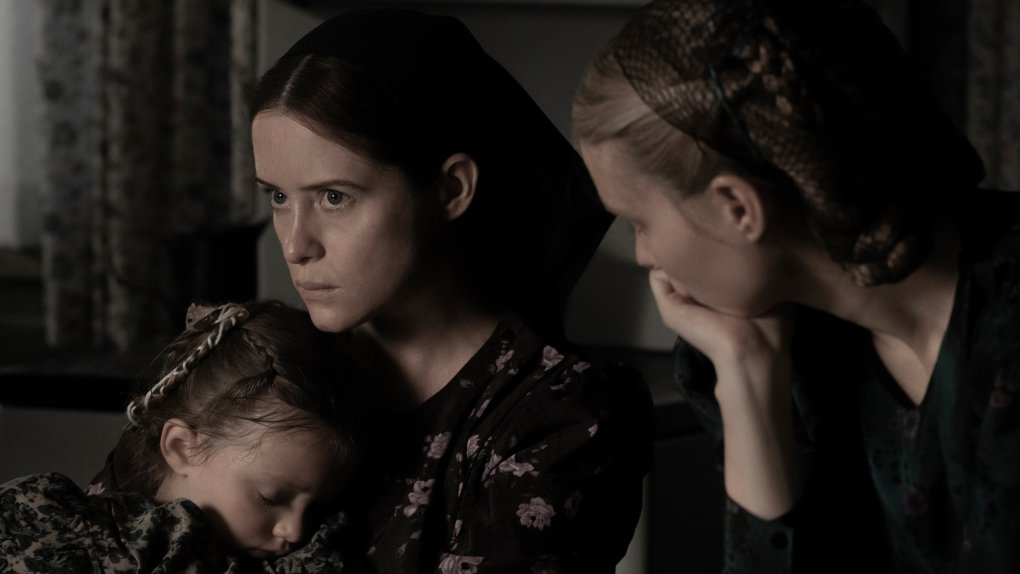Film review: Women Talking takes a stark yet deep look at the power of words
Strong performances as females in a religious colony find their voices amid sexual assaults
Women Talking is now playing in Vancouver at Fifth Avenue Cinemas
AS AUSTERE AND desaturated as a Wyeth painting, Sarah Polley’s Women Talking takes a bit of time to adjust to. Based faithfully on Miriam Toews’s book of the same name, the film is set, largely, in a shadowy hayloft—and is mostly based in the dialogue the title suggests.
But the stark look belies a film that slowly embroiders rich characters and ideas that work their way under your skin and last long after you leave the theatre. In fact, the simple framing brings the profound message into relief: that words, and voices, can have power.
Crucially, Polley chooses not to focus on the acts of sexual violence that spur that secret emergency meeting of the women of an isolated, rural religious colony. The men of the community have been knocking out women and girls with animal tranquilizers and violently sexually assaulting them, but we see only fractured flashes of the bloody aftermath. In their isolated world, the women literally have no words to describe what has happened.
Male elders have dismissed the accounts as the result of either wild female imagination or demonic visits. (Toews based the book on true events within a Mennonite community in Bolivia in the mid-2000s, but Polley chooses not to make the sect specific here.) The men have given the women an edict: forgive their attackers within 24 hours or else leave in exile, shunned by their community and God. Over that time, the women wrestle with three choices: do nothing, stay and fight, or leave.
For just over 90 minutes, we are immersed in these women’s sheltered world. They’re illiterate, by design, but it’s clear they are smart and creative, braiding together arguments the way one girl in the loft intricately plaits her friend’s hair.
Hildur Guðnadóttir echoing acoustic guitars and the sepia lighting give the women’s deliberations an extra, haunting urgency.
Polley’s success relies on the strength of the cast, which commits fully here, bringing complexity to each portrait. There’s Frances McDormand's scar-faced matriarch, who chooses to leave the meeting early, and go home and forgive, as she has always done. Elsewhere, Rooney Mara’s Ona, left pregnant after a sexual assault, is a dreamer who defiantly refuses to speak anything but the truth. Mariche (Jessie Buckley) has suffered domestic abuse, and lashes out in bitter rage. Salome (Claire Foy) is fiercely protective of her children. There are also nuanced, affecting portraits by Sheila McCarthy and Judith Ivey as the sect’s wise and weary elders.
Polley is careful to not make blanket statements about men. Ben Whishaw plays a central role as August, ostracized for being unmanly, home from getting educated, and ready to take minutes for these women who can’t read or write. He pines for Ona, adding layers of heartbreak to the story. Polley’s camera also lingers on the young boys of the community, expressing as much concern for their fate as for the mothers who don’t want to leave them behind.
In the end, though, Women Talking's real magic is in watching its female characters find and form their voices for the first time. It becomes a perfect fable for a time when women are trying to raise their voices in a larger context. Along the way, it's a movie that helps us to really listen again.













